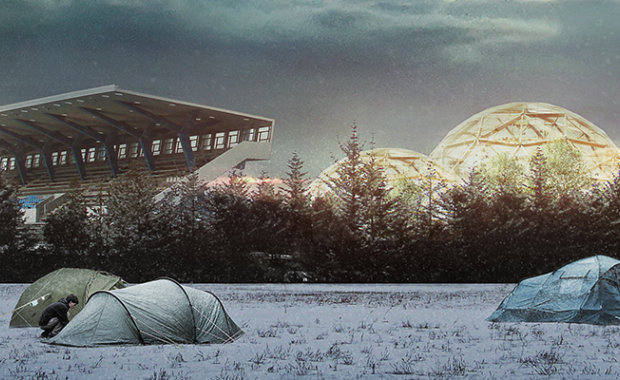A team of young entrepreneurs want to use the used waste water from the Laugardalur swimming pool to pool to heat greenhouses. The team hopes the greenhouses would be built between the swimming pool and the Laugardalur camp grounds. Currently the area is used by travellers in caravans and trailers.
Recycle the energy of the geothermal pools
Aron Leví Beck, one of the members of the group, told the local newspaper Morgunblaðið that the idea was to recycle waste water from the swimming pool. He points out that huge quantities of hot water, which could be recycled, are currently going to waste at the pool. He has been unable to find any examples of the recycling of water from swimming pools anywhere in the world.
A small step towards a greener future
The team proposes that the greenhouses would be connected to a local market where people in the neighbourhood could buy locally grown vegetables. Connecting the greenhouses to the pools would further strengthen the area as the centre of activity and culture in the neighbourhood.
“We are first and foremost doing this for the people in the neighbourhood. If the plan was mass production for the general market it would make much more sense to build giant greenhouse somewhere in the suburbs or outside of Reykjavík. But the plan is to eliminate the intermediaries, and make it unnecessary to transport the produce over long distances. What we really want to create are urban farms.”
Aron adds that this project was environmentally important and would be a “tiny, hen-sized step toward treating our earth a little better.”
A team of young entrepreneurs want to use the used waste water from the Laugardalur swimming pool to pool to heat greenhouses. The team hopes the greenhouses would be built between the swimming pool and the Laugardalur camp grounds. Currently the area is used by travellers in caravans and trailers.
Recycle the energy of the geothermal pools
Aron Leví Beck, one of the members of the group, told the local newspaper Morgunblaðið that the idea was to recycle waste water from the swimming pool. He points out that huge quantities of hot water, which could be recycled, are currently going to waste at the pool. He has been unable to find any examples of the recycling of water from swimming pools anywhere in the world.
A small step towards a greener future
The team proposes that the greenhouses would be connected to a local market where people in the neighbourhood could buy locally grown vegetables. Connecting the greenhouses to the pools would further strengthen the area as the centre of activity and culture in the neighbourhood.
“We are first and foremost doing this for the people in the neighbourhood. If the plan was mass production for the general market it would make much more sense to build giant greenhouse somewhere in the suburbs or outside of Reykjavík. But the plan is to eliminate the intermediaries, and make it unnecessary to transport the produce over long distances. What we really want to create are urban farms.”
Aron adds that this project was environmentally important and would be a “tiny, hen-sized step toward treating our earth a little better.”







